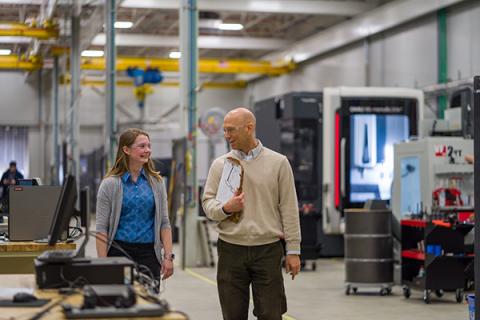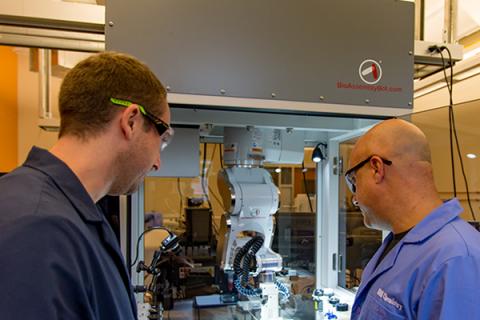
Dr. Katherine Mirica
Dartmouth College Department of Chemistry
Biosensors are an important tool in medicine to assess stress and exertion, enable early diagnosis and treatment of disorders, and modify human behavior. The use of portable, bio-compatible, wearable, and implantable bioanalytical systems has the potential to improve monitoring of chronic diseases, enhance stress management, promote safety and security of medical information, and improve fundamental understanding of human physiology. Existing design strategies for creating porous electrodes with predictable structure-property relationships are extremely limited in scope. NH BioMade is using 3-D printing techniques to develop wearable and implantable sensors from metal-organic frameworks for better predictability, control, and self-healing capabilities.
Hypothesis:
Supramolecularly cross-linked polymers can serve as a 3D printing template to create hierarchically-organized functional nanomaterials, allowing cooperative assembly of conductive MOFs with the polymer network, which in turn enables precise bottom-up control over molecular and nanoscale porosity of electrode materials.
Intellectual Merit/Novelty:
- Fundamental principles of controlling dynamic micro-to-macro scale assembly of highly modular 3D printable architectures
- Fundamental discoveries for guiding the multifunctional and multi-component materials design of hierarchically-assembled materials capable of targeted electrochemical sensing in complex and dynamic biological systems



